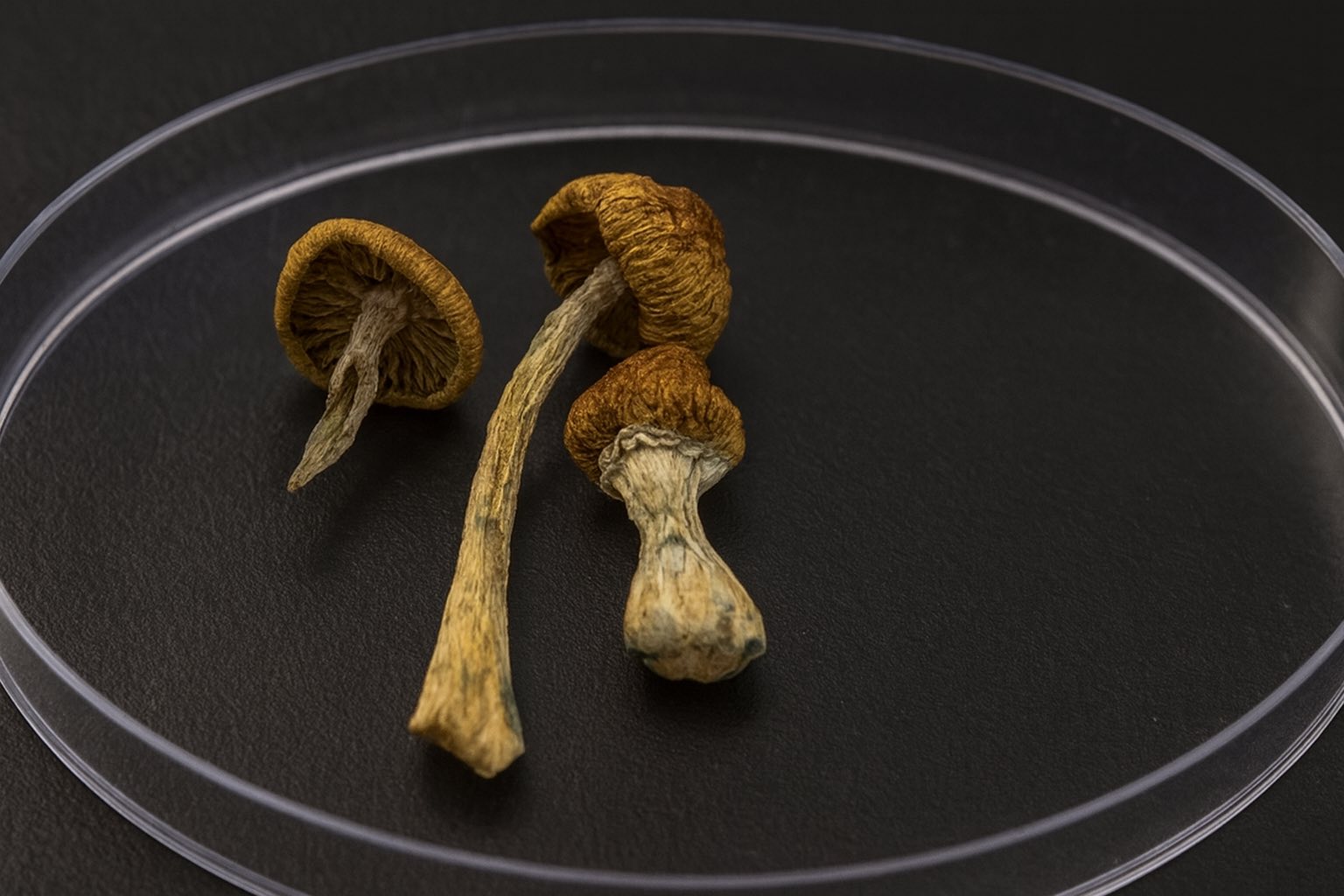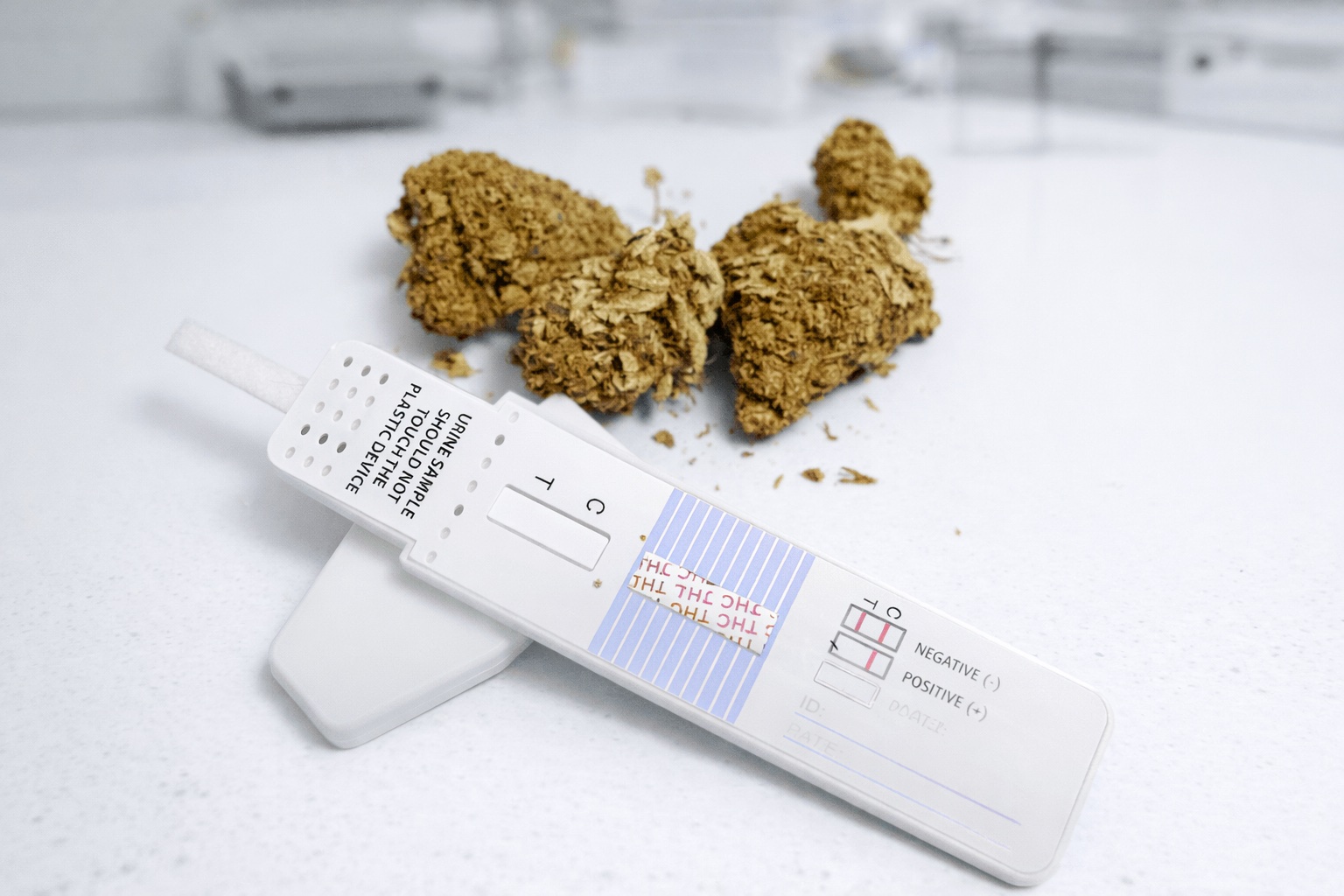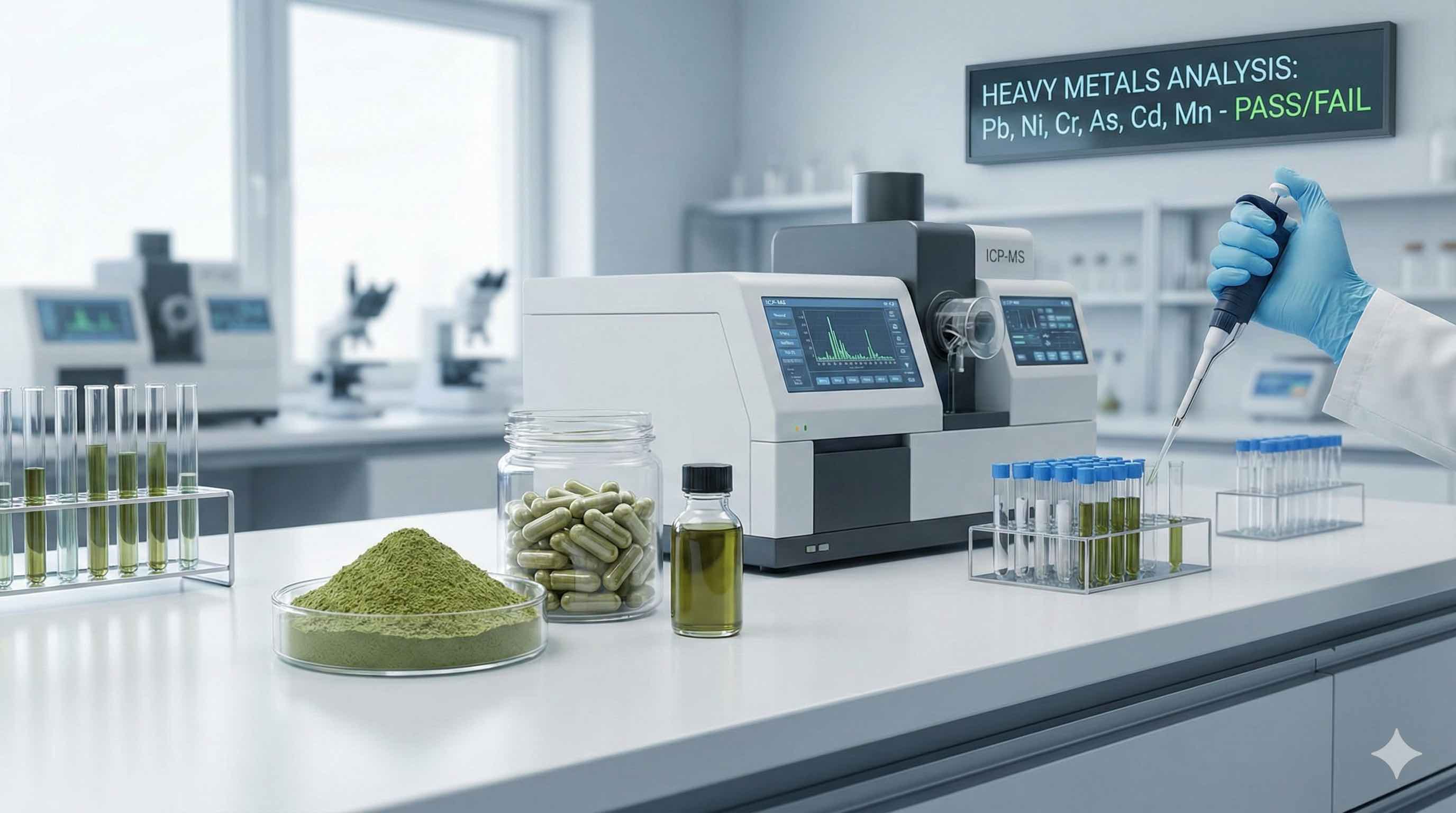Why Psilocybin Product Safety Starts in the Lab
The importance of rigorous lab testing to ensure safety and quality standards cannot be overstated as psilocybin products enter legal markets. Risks from mold, bacteria, heavy metals, and inconsistent potency pose threats to both consumer health and brand credibility. ACS Laboratory—one of the few DEA‑registered labs in the U.S.—provides a critical first line of defense by identifying these hazards before the products reach patients or consumers.
This article details the current laws surrounding psilocybin, its health risks in products, and how ACS Laboratory psilocybin testing helps brands guarantee safe, effective formulas.
Who Can Market & Test Psilocybin in the U.S.?
Psilocybin’s illicit status in many locations means brands must navigate a tricky legal framework to create compliant products. Qualified mushroom labs understand the nuances, can streamline the process, and prevent legal setbacks.
Federally:
Psilocybin is classified as a Schedule I substance under U.S. law, meaning it is federally restricted to research use only. To legally possess or study psilocybin, organizations must obtain a Schedule I license from the DEA. This license allows registered facilities to manufacture, handle, store, or test psilocybin for scientific or analytical purposes under strict compliance protocols and recordkeeping requirements.
Research organizations can only test psilocybin with a DEA-licensed laboratory authorized to manage Schedule I substances.
Local decriminalization efforts
Several U.S. cities—including Denver, Oakland, Santa Cruz, Seattle, and Detroit—have decriminalized personal possession and cultivation of psilocybin mushrooms. Still, these measures do not permit commercial activity or lab testing.
State psilocybin programs
In contrast, Oregon, Colorado, and New Mexico have established therapeutic use frameworks that legally allow certain licensed entities to produce, handle, and administer psilocybin.
Mushroom producers and service centers must follow state-mandated testing rules in these states. For instance:
- Oregon requires testing through laboratories licensed by Oregon Psilocybin Services and accredited by ORELAP.
- Colorado and New Mexico also mandate product testing. Their regulatory frameworks surrounding testing protocols and lab approval are in active development.
Working with Psilocybin, Amanita, or Novel Blends?
Explore specialized alkaloid panels for whole fruiting bodies, extracts, and infused formats.
See Psychedelic Testing Panels
Who Can Market & Test Psilocybin Internationally?
Global psilocybin regulations vary widely, but most countries fall into two categories: exemption-based markets and medical/research-only models.
Exemption-Based Markets
- Jamaica (source) and the Netherlands (source) allow psilocybin under legal exemptions.
- Psilocybin testing is not mandatory in Jamaica, but reputable producers often partner with DEA-registered labs like ACS Laboratory to verify potency and screen for contaminants.
- These labs follow food safety, clinical safety, or private-sector testing standards.
Canada’s Research Framework
- Psilocybin is classified as a Schedule III substance under the Controlled Drugs and Substances Act (CDSA) in Canada.
- Canada allows special psilocybin access through clinical trials, provincial research, or therapeutic licenses, and compassionate use exemptions for people with serious life-threatening conditions.
- Only Health Canada–licensed labs can legally test psilocybin.
Common Safety Risks in Psilocybin Products
Psilocybin products carry unique safety risks due to the biological nature of mushrooms and the environments in which they're grown, processed, and stored. Mushroom testing is essential to ensure consumer safety and product consistency at every production stage.
Microbial contamination
Psilocybin-producing mushrooms are bio-accumulators, meaning they absorb components in their environment in high concentrations, including potentially toxic elements, such as:
- Pesticides and harmful elements that linger in the water and soil
- Harmful bacteria, such as Salmonella, Listeria, or Staphylococcus spp, from improperly sterilized fertilizer
- Mold and yeast, especially if mushrooms are improperly dried or stored in warm, moist environments
Heavy metal uptake
These mushrooms can also absorb toxic metals from contaminated soils. Without proper testing, products may contain toxic levels of:
- Mercury (Hg)
- Lead (Pb)
- Cadmium (Cd
- Arsenic (As)
- Copper (Cu)
Variable potency
Inconsistent potency is one of the most significant and common risks in psilocybin products. Without proper testing, consumers or patients may unknowingly take far too strong or weak doses to produce the intended effect.
Two main factors drive mushroom alkaloid content variability:
- Psilocybin and especially psilocin degrade quickly when exposed to oxygen, heat, or sunlight. Cultivation practices vary with different substrates and flushes.
- Different Psilocybe species—and even different strains within the same species—naturally produce varying levels of active alkaloids.
Reports indicate that genetics alone can make one batch 3 to 10 times more potent than another. For example:
- Psilocybe cubensis may contain anywhere from 0.3% to 2% total tryptamines by dry weight.
- Psilocybe azurescens can exceed 3%, delivering much stronger effects.
Mislabeling
Labels can accidentally misrepresent safety or dosage, especially in unregulated markets. Even well-meaning manufacturers may deliver inaccurate dosing or safety information without third-party testing.
Consequences of mislabeling include:
- Unpredictable experiences, such as a patient expecting 1 mg of psilocybin but receiving 5 mg or more
- Overexposure risks, especially in clinical or therapeutic settings where precision is critical
- Product recalls and brand damage from regulatory violations or consumer harm
- Reporting potency in terms of the total weight of the mushroom rather than the percentage of active tryptamines.
- Barriers to clinical adoption, as healthcare systems require validated, consistent dosing for medical use
- Reporting potency in terms of the total weight of the mushroom rather than the percentage of active tryptamines.
How ACS Laboratory Helps Licensed Psilocybin Entities and Legal Operators
ACS Laboratory is an international leader in mushroom testing, with the expertise and proven methods to guarantee compliance and accuracy.
DEA‑registered facility authority
ACS Laboratory is authorized by the DEA to handle Schedule I substances, including psilocybin. This registration allows ACS to legally receive and test samples from DEA‑licensed producers and researchers across the U.S. and internationally.
With Schedule I authorization, ACS Laboratory can:
- Receive, store, and analyze psilocybin samples from legal operators
- Partner with licensed researchers, clinical trial sponsors, and authorized facilities
- Maintain full federal compliance, including recordkeeping, security protocols, and reporting
In addition to supporting U.S.-based clinicians and researchers, ACS works with international psilocybin manufacturers and retreat centers seeking R&D data, product validation, or export compliance. With experience managing global shipments and customs protocols, ACS helps ensure Schedule I samples meet all U.S. import and regulatory standards.
Comprehensive potency panel
Building on its DEA registration, ACS Laboratory offers a comprehensive psilocybin potency panel to support precise formulation and dosing. While many labs focus solely on psilocybin, ACS quantifies a broader range of active alkaloids to meet research demands, therapeutic programs, and product development.
The lab’s comprehensive mushroom panel includes:
- Psilocybin
- Psilocin
- Harmine
- Harmane
- Baeocystin
- Norbaeocystin
- Norpsilocin
- Aeruginascin
- 4-hydroxy TMT
- 4-hydroxytryptamine
Contaminant screening
Beyond potency, ACS performs full-spectrum safety panels tailored for mushrooms that include:
- Microbial contamination: Detects mold, yeast, E. coli, Salmonella, etc.
- Heavy metals: Screens for arsenic, cadmium, lead, mercury, and more
- Mycotoxins: Includes aflatoxins and ochratoxins produced by mold
- Pesticide residues: For cultivated mushrooms exposed to agricultural inputs
- Residual solvents: For processed extracts
These screenings are critical for patient safety and are required in therapeutic markets like Oregon, Colorado, and Canada.
Multiple sample types accepted
ACS Laboratory has perfected protocols for whole mushrooms, ground formulas, and liquid psilocybin extracts. Clients can submit samples from virtually any mushroom product, including:
- Dried fruiting bodies
- Extracts
- Capsules
- Beverages
Test My Psilocybin: What It’s Like to Start Testing with ACS
ACS Laboratory makes legal psilocybin testing secure and straightforward for licensed operators. We work with DEA-registered entities in the U.S. and internationally licensed producers in markets like Jamaica, the Netherlands, and Canada.
Legal Intake and Support
After verifying your credentials, our team walks you through the onboarding process. We provide step-by-step guidance for completing intake forms, preparing compliance documentation, and packaging your samples for safe, legal shipment.
Secure and Compliant Handling
We follow strict chain-of-custody protocols for all Schedule I substances. Every sample is logged, stored in a controlled-access environment, and protected using tamper-evident packaging. Our process preserves sample integrity while meeting all DEA documentation and security standards.
Clear, Validated Reporting
Once testing is complete, we deliver a digital Certificate of Analysis through our secure client portal. Each report details mushroom potency concentrations, contaminant results, batch metadata, and method references, formatted for regulators, clinicians, and commercial partners.
Bottom Line: Safe Psilocybin Products Begin in the Lab
Accurate third-party testing is essential for psilocybin containing mushroom products. Testing minimizes risks of overexposure, supports compliance, preserves brand integrity, and sets the benchmark for future regulation.
If you're a global manufacturer or U.S.-based researcher, contact ACS Laboratory to ensure your psilocybin products are safe, consistent, and ready for the future.








.png)


.jpg)

.png)
.png)
.png)
.png)